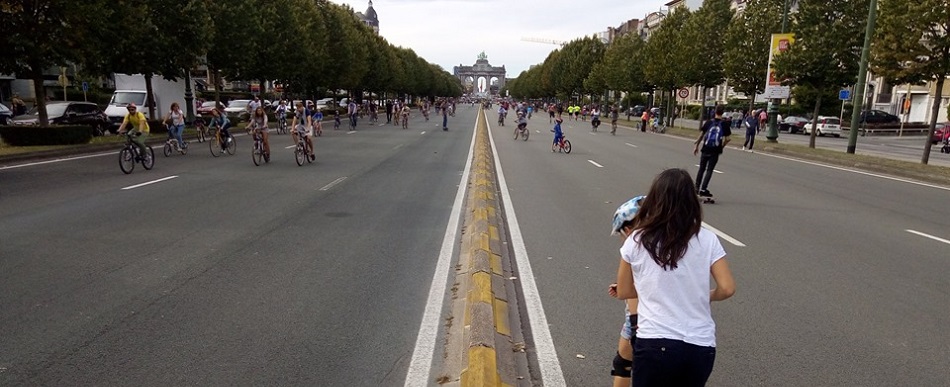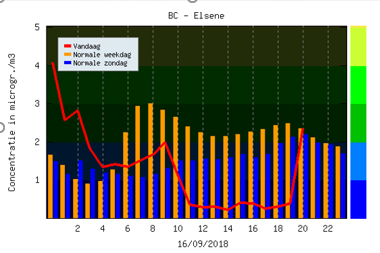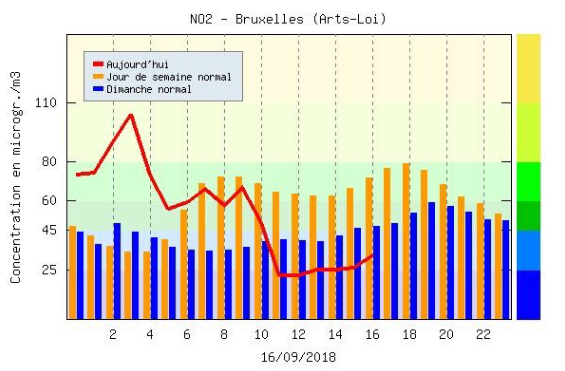
80 % decrease in black carbon on Brussels car-free day
For one day a year, the Brussels capital region is banning all individual motorized transport – or to formulate it in a more appropriate way: For one day a year, the inhabitants of the Brussels capital region and its visitors, can breathe clean air.
Cars in Brussels were banned yesterday between 9 am and 7 pm. The left graph below indicates the levels of black carbon on a normal week day (yellow), on a normal Sunday (blue) and the red line indicates yesterday’s concentration during car free day. Almost immediately after 9 am, when the car ban takes effect, the concentration of black carbon decreases to about 1/5 of a normal Sunday. After 7 pm, when cars return, the concentration increases almost immediately to ‘normal’ levels. For NO2, the other main air pollutant caused by cars, the improvement is also significant albeit less dramatic. NO2 concentration dropped by about 30 % compared to a normal Sunday. Many people also posted on social media pictures of the tens if not hundreds of thousands people walking, cycling and playing on the streets of Brussels – a true democratisation of the public space!


Following yet another success of the Brussels car-free day, calls were directed at politics to introduce car free days more often. While ECF welcomes such calls, the real challenge is how to decrease car use and increase active mobility every single day, particularly on work days. This a task that needs to be addressed by all authorities, from local to European.
Earlier this year, the European Commission started today infringement procedures against France, Germany, Hungary, Italy, Romania and the United Kingdom for violating EU air quality rules. In a letter addressed to these Member States, ECF called for following measures:
- Set up a National Cycle Investment Fund. It shall be equipped with annual investments equal to at least 10 Euro per person and used to co-fund local and regional cycle projects, such as cycle highway projects and other measures;
- Introduce or extend a national support scheme for the purchase of conventional and electric bicycles (L1e-A), the latter similar to schemes given to e-cars in a number of countries, and/or set up tax-free allowance schemes for cycle to work;
- Frame national support and coordination to cycling in a systematic manner, by developing and implementing a national cycling strategy.
Contact the author
Recent news!
Upcoming events
Contact Us
Avenue des Arts, 7-8
Postal address: Rue de la Charité, 22
1210 Brussels, Belgium









